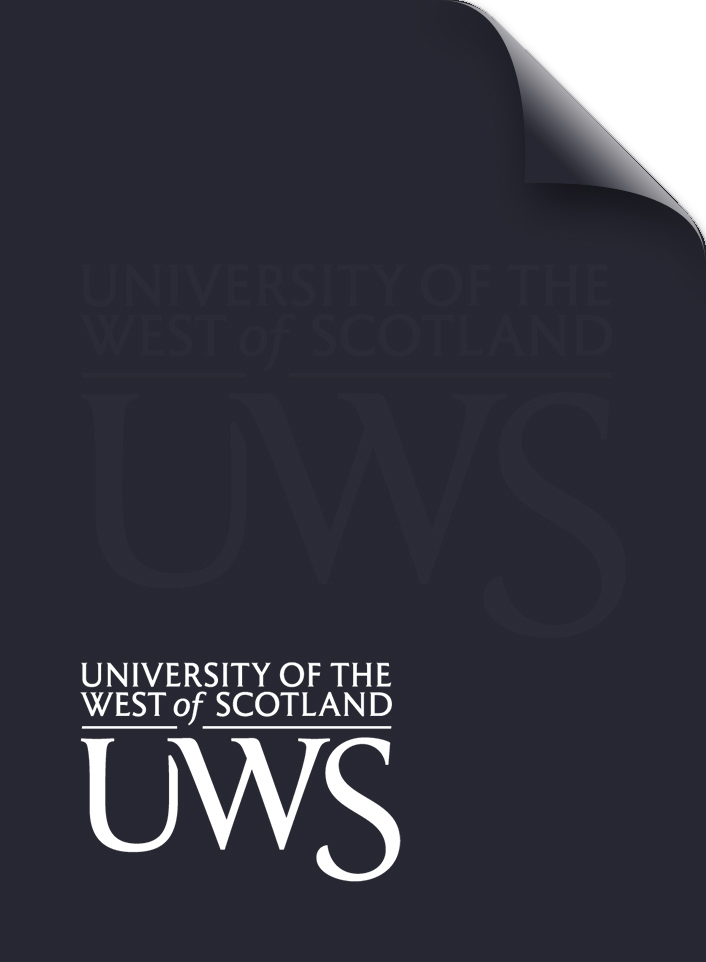COMPLAINTS
UWS is committed to providing the highest level of service for its students and members of the public who may have contact with the University. However, the University recognises that, on occasion, issues or concerns may be raised by students or members of the public.
If you have an issue, concern or problem you are encouraged to raise it with the School or Professional Service area in which the issue arose. The purpose of this frontline resolution is to attempt to resolve your problem as quickly as possible. However if after trying to resolve the problem you are still not satisfied, then you can submit a complaint.
Although not compulsory, it would be helpful if you could complete and return a complaint form to complaints@uws.ac.uk. This will enable you to focus on the points you wish to raise and for us to retain a clear record of your complaint. It would also be helpful if you provided evidence to support your complaint.
HOW TO MAKE A COMPLAINT
The University endeavours to operate with integrity, diligence and to act in line with all relevant laws and regulations. However, it recognises that it may occasionally fail to meet the high standards which it expects, and which it may be reasonably expected by others, to achieve.
The University has therefore established procedures through which concerns can be raised and acted upon.
Raising concerns
The University has established procedures that enable you to raise concerns which may include, inadequate level of service, reports of bribery, research misconduct etc.
The University has established procedures that enable you to raise concerns which may include, inadequate level of service, reports of suspected bribery or fraud and research misconduct etc.
Please see our Policies, Procedures & Guidance page for more details.
Complaints by students and members of the public
Individuals, other than members of staff, who believe that they have been subjected to an inadequate level of service, mistreatment or mal-administration by the University are encouraged in the first instance to raise the matter with the School or Professional Service area involved in order to address the situation.
Where this does not result in a satisfactory resolution for the complainant, the matter can be progressed via the University’s Complaints Handling Procedure.
Separate arrangements are in place for students wishing to appeal academic assessments or disciplinary matters.
Whistleblowing
Concerns relating to matters falling within the scope of the Public Interest Disclosure (Whistleblowing) Procedure should be reported to the University Secretary, the University Solicitor or the Head of Internal Audit Service, directly or through the general e-mail address at speak.up@uws.ac.uk.
Note: this email address is not to be used by students to raise concerns or complaints about their own academic circumstances.

Academic Appeals
What is a student appeal?
A student appeal is defined as a request to review a decision of an academic body charged with making decisions on student engagement, assessment, progression, awards and student disciplinary cases.
Please note that separate arrangements are in place for students wishing to appeal academic assessments or disciplinary matters.
ACADEMIC APPEALS & EXTENUATING CIRCUMSTANCES
Complaints about the Students' Union
The UWS Students' Union has a separate complaints procedure which sets out how you can make a complaint about the Students' Union. If there are any complaints and concerns about the Students' Union, these should be emailed to: Unionpresident@uws.ac.uk
UWS Complaints Handling Procedure (CHP)
You can use this Complaints Form as part of the Complaints Handling Procedure (this is not required).
Part 1 - Overview and Structure
- Part 1 - Overview and Structure - This document outlines the structure of the UWS CHP; the five other parts identified on this page. In addition, it outlines the two stages to our CHP, escalation options, confidentiality obligations and expected behaviour of staff and complainants.
Part 2 - When to use the CHP
- Part 2 - When to use the CHP - This document provides guidance on identifying what is and what is not a complaint, handling complex or unusual complaint circumstances, the interaction of complaints and other processes, and what to do if the CHP does not apply.
Part 3 - Complaints Handling Process
- Part 3 - Complaints Handling Process - This document provides guidance on handling a complaint through stages 1 and 2 of the CHP, and dealing with post-closure contact.
Part 4 - Governance
- Part 4 - Governance - This document outlines staff roles and responsibilities and guidance on recording, reporting, publicising and learning from complaints.
Part 5 - Guide for students and members of the public
- Part 5 - Guide for students and members of the public - This document outlines the necessary information for students and members of the public on how we handle complaints.
Part 6 - Acceptable Behaviour Guidance
- Part 6 - Acceptable Behaviour Guidance - This document sets out what we consider unacceptable behaviour and how we deal with unacceptable behaviour directed towards our staff who are dealing with complaints.
Complaints Privacy Notice

The University is committed to looking after any information that you make available to us when you make a complaint to us. We aim to be clear about what we will do with your data. This privacy notice explains when and why we collect personal information about you, how we will use / share it, keep it secure and your rights in relation to this information.
Complaints Privacy Notice (pdf)Complaints Performance Information
The University reports on its complaints handling performance annually in line with statutory requirements. This includes performance statistics showing the volume and type of complaints and key performance details, for example on the time taken and the stage at which complaints were resolved.
- Annual Complaints Report 2023-24 (pdf)
- Annual Complaints Report 2022-23
- Annual Complaints Report 2020-21
- Annual Complaints Report 2019-20
- Annual Complaints Report 2018-19
- Annual Complaints Report 2017-18
- Annual Complaints Report 2016-17
- Annual Complaints Report 2015-16
- Annual Complaints Report 2014-15
- Annual Complaints Report 2013-14
Independent External Review
The Scottish Public Services Ombudsman (SPSO) allows access to fair and impartial decision-making on individual cases where users of public services and service providers disagree on the quality of service provided, particularly in areas of alleged maladministration and injustice. Their service is independent, impartial and free.
Once all stages of the University’s complaints procedures have been exhausted, if the complainant remains dissatisfied with the conclusion of the University's Complaints Handling Procedure, they are entitled to ask the SPSO to look at their complaint.
The SPSO will look at issues such as service failure and maladministration (administrative fault) as well as the way the University has handled the complaint.